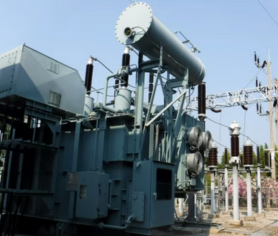
The power grids that keep the wheels of the society running depends heavily on transformers. You won’t find a power distribution system which doesn’t use a transformer in this modern age. However, despite the importance of these machines, they’re usually overlooked when it comes to regular maintenance. Truth be told, regular maintenance is indeed a crucial issue if you want to keep the transformers up and running for an extended period of time. Routine inspections and maintenance can, in fact, help identify any underlying issues with the device early on and save lump sum repair costs.
Transformer maintenance on a regular basis is not only recommended, but also required. Transformer manufacturers in Mumbai always advise routine transformer maintenance to keep them operating at peak performance, reduce costly repairs, and improve efficiency. Let’s examine the reasons behind scheduling routine transformer maintenance, its components, and the advantages of giving it top priority in this blog.
Why Do Transformers Need Regular Maintenance?
Transformers are generally quite robust, but with time their performance may deteriorate due to a variety of internal and environmental conditions to which they are constantly exposed. Transformers are susceptible to wear and strain on its mechanical components, contamination of the oil, and deterioration of the insulation inside. Such problems can result in inefficiencies, operational failures, protracted outages, and costly repairs if they are not promptly maintained.
-
Preventing Unplanned Downtime
One of the many immediate benefits of scheduling periodic maintenance for your transformer is that it prevents unforeseen breakdowns. Numerous variables, such as fluctuating weather patterns and heavy operational loads, might affect transformer performance. A failing transformer has the potential to completely shut off the power supply to an establishment or grid, which might lead to protracted outages, especially if finding new components or repairing the transformer takes a long time. We can ensure that potential issues are discovered before they become serious ones by doing routine maintenance and inspections. This reduces unplanned outages and ensures a steady supply of electricity. -
Extending the Lifespan of the Transformer
If a transformer is properly maintained, its lifespan is usually extended. However, if upkeep is disregarded, the component’s lifespan might be considerably reduced. The materials used in the transformer may degrade over time as a result of electrical and thermal stresses, raising the possibility of failures. Regular maintenance ensures that issues such as oil contamination or insulation failure are detected early and resolved before they result in irreversible harm. -
Improving Operational Efficiency
Improper maintenance of transformers can cause them to lose efficiency over time, which increases expenses associated with running them. Transformers need to have their energy losses checked and their ideal efficiency verified as part of routine maintenance. For example, low oil levels, damaged insulation, or malfunctioning parts can cause inefficiencies that raise energy costs and lower the grid’s overall efficiency. Frequent inspections and maintenance help the transformer function at its best and guarantee that it will continue to do so effectively, saving energy waste. -
Ensuring Safety
Transformers manage high-voltage electrical current, and any breakdown can become extremely dangerous. This concerns the risks of explosions, electrical shocks, and fire. Internal short circuits and overheating are more likely to occur when the cooling and insulating oil inside transformers deteriorates or becomes polluted over time. Regular maintenance guarantees that every component of the transformer is operating at peak efficiency and helps to reduce such hazards. Additionally, it ensures that any potentially dangerous issue is handled before it results in mishaps. The transformer’s operating safety is ensured in large part by performing routine oil tests, insulation inspections, and temperature monitoring. -
Reducing Long-Term Costs
Regular maintenance really saves you a lot of money over time, even if it may appear to only increase operating expenses. Regular maintenance services and inspections may save a considerable amount of money compared to the costs of emergency repairs, replacing damaged equipment, and mitigating the financial effect of downtime resulting from transformer failures. Neglected transformers can also result in increased energy consumption and higher energy expenses because of their inefficiency. By scheduling routine transformer repair, we can prevent such problems and have a steady supply of electricity.
Conclusion
Like any other equipment, regular maintenance is more than a necessity for transformers. Especially if you consider their importance in the power distribution networks, it’s extremely crucial that these devices do not encounter sudden breakdowns or outages. Regular maintenance will ensure that your transformer runs at an optimal level, avoids unnecessary breakdowns and outages, and keeps the power grid running efficiently.